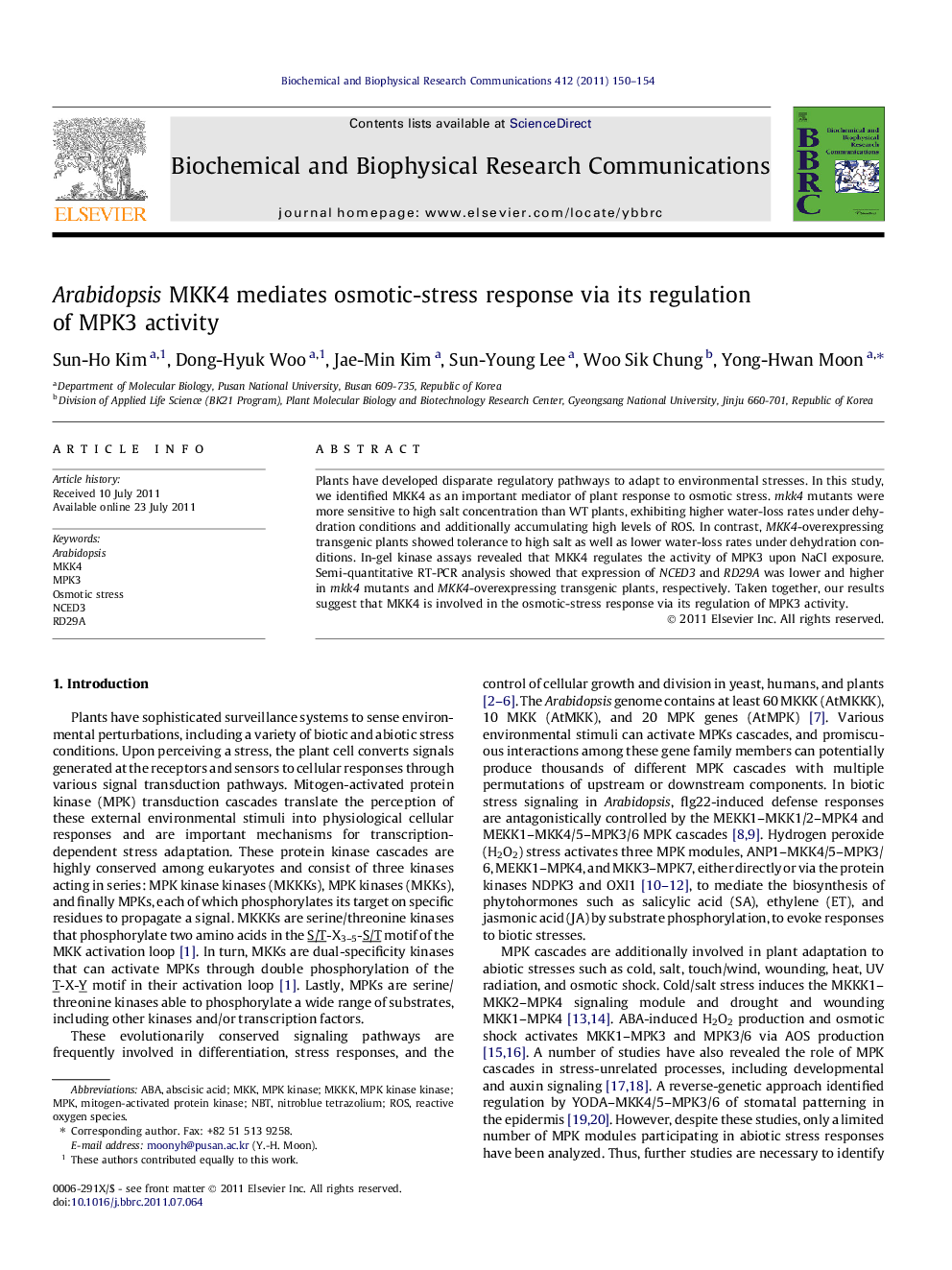| Article ID | Journal | Published Year | Pages | File Type |
|---|---|---|---|---|
| 1930311 | Biochemical and Biophysical Research Communications | 2011 | 5 Pages |
Plants have developed disparate regulatory pathways to adapt to environmental stresses. In this study, we identified MKK4 as an important mediator of plant response to osmotic stress. mkk4 mutants were more sensitive to high salt concentration than WT plants, exhibiting higher water-loss rates under dehydration conditions and additionally accumulating high levels of ROS. In contrast, MKK4-overexpressing transgenic plants showed tolerance to high salt as well as lower water-loss rates under dehydration conditions. In-gel kinase assays revealed that MKK4 regulates the activity of MPK3 upon NaCl exposure. Semi-quantitative RT-PCR analysis showed that expression of NCED3 and RD29A was lower and higher in mkk4 mutants and MKK4-overexpressing transgenic plants, respectively. Taken together, our results suggest that MKK4 is involved in the osmotic-stress response via its regulation of MPK3 activity.
► The first finding of the role of Arabidopsis MKK4 in abiotic stress response including osmotic-stress response. ► MKK4 mediates the response to osmotic stress such as high salt and drought. ► MKK4 mediates the osmotic-stress signal transduction via its regulation of MPK3 activity. ► MKK4 is involved in the osmotic-stress response by promoting the expression of ABA-dependent stress-responsive genes such as NCED3 and RD29A. ► MKK4’s participation in the osmotic-stress response might be contingent on its post-transcriptional modification, possibly by phosphorylation.
